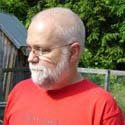Forgive the self-referential moment, but we have been added to The Wittgenstein Portal. (Sounds a little like a jumping-off point for time travel or universe-hopping.) Using the Portal, I discovered the following (as far as I can tell anonymous) paragraphs from a report on a conference. I offer them here as a clear summary of some of the issues we've been going over.
Wittgenstein and Forms of Life "The meaning of words in a language is not given by a kind of inner definition carried around by the speaker, or by a direct labelling of things in the world by words, but by the way in which the word is used within the language speaking community in what Wittgenstein called "the language game". Hence "The meaning of a word is its use in language." (PI §43) As the use of a language is part of a wider network of social practices, that means to properly understand the meaning of a word, you have to understand these social practices. This explains Wittgenstein’s famous remark that, "If a lion could talk, we could not understand him." (PI, IIxi). When the lion talks, therefore, what it says can only be understood by someone who can share the social context of the lion. For Wittgenstein, language is not just a means of communication. To a large extent, language defines our whole experience of the world. "The limits of my language mean the limits of my world." (Tractatus, p184) These reflections on the connection for Wittgenstein between language, society and the world explain why scholars are so interested in the role of ‘forms of life’ in Wittgenstein’s thought." [TPM]
There is an interesting point raised later in the report that we should not fall into the error of supposing that forms of life & language games match up exactly; extrapolating from that, I'd say that a given form of life can & must involve the use of multiple language games, which fairly often come into conflict with each other.
Philosophical Investigations
Christopher Robinson & Joseph Duemer read Wittgenstein's Philosophical Investigations


0 Comments:
Post a Comment
<< Home